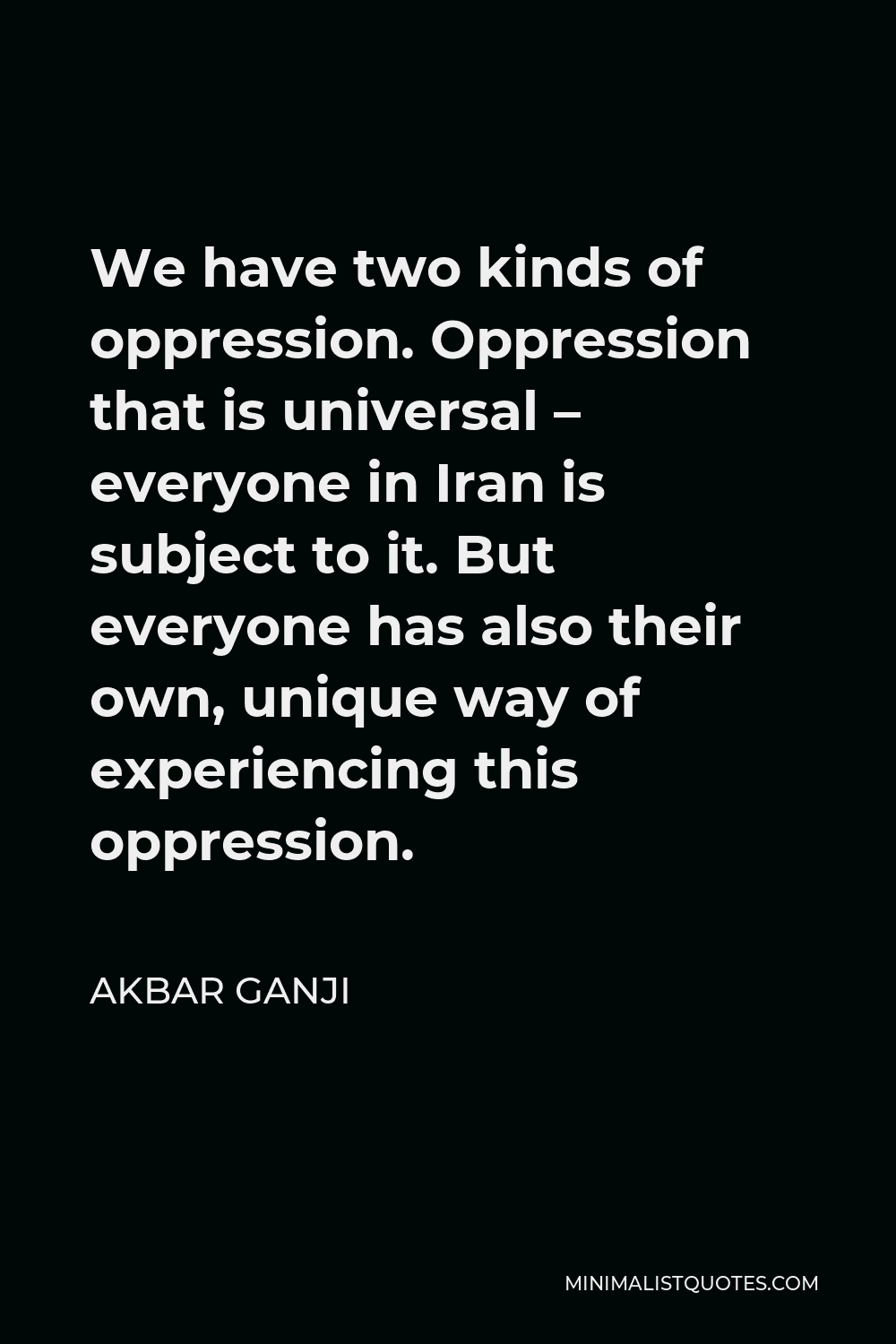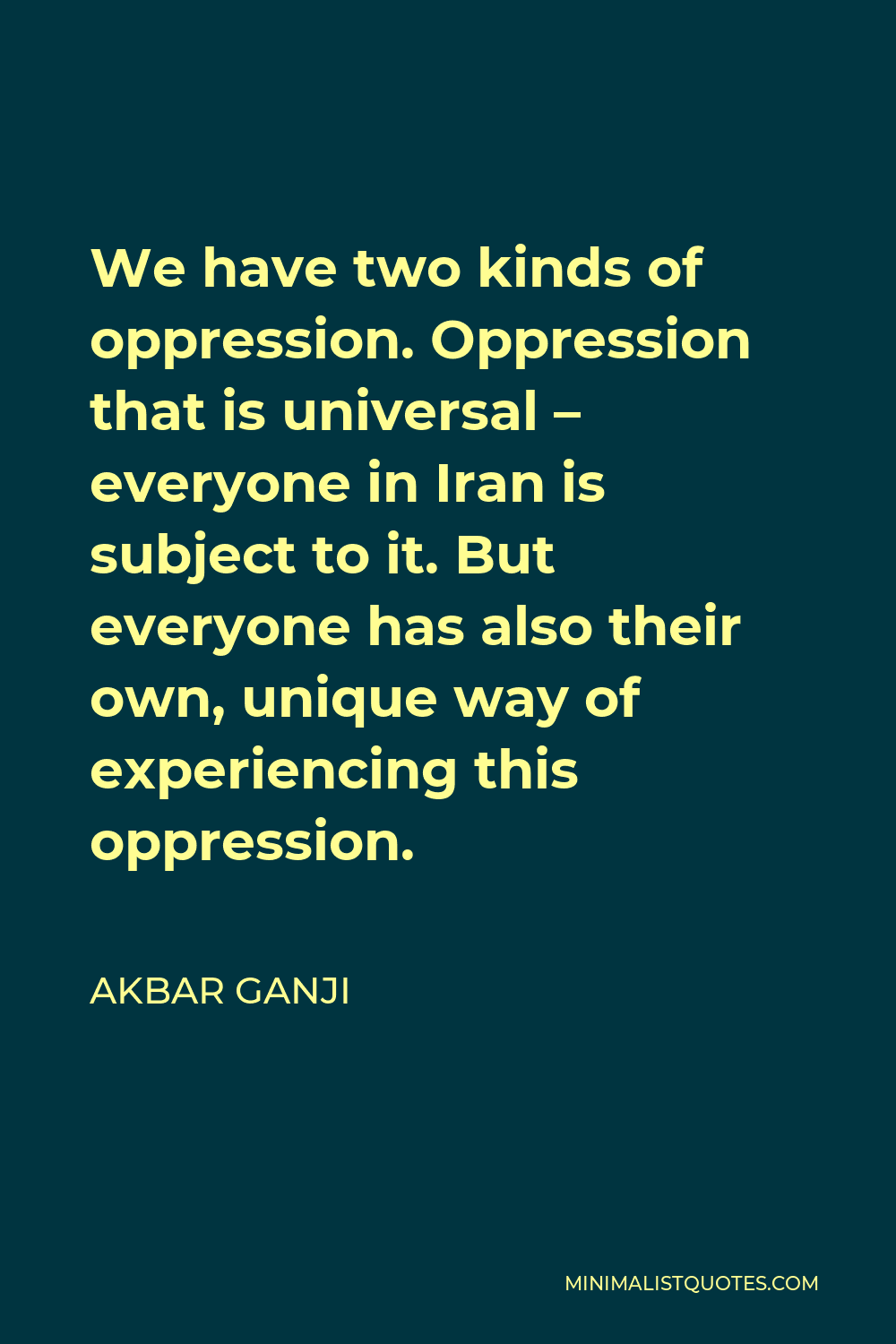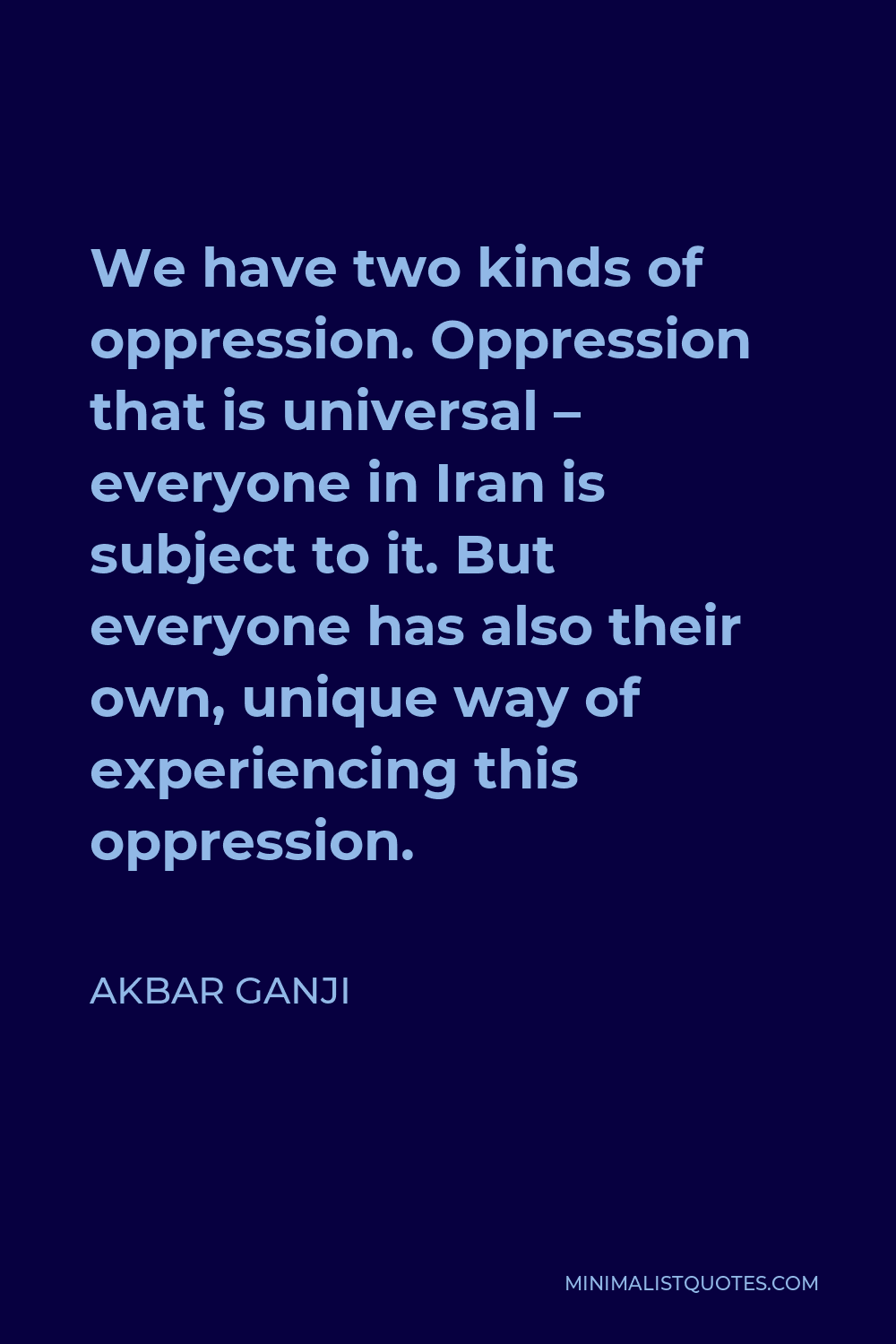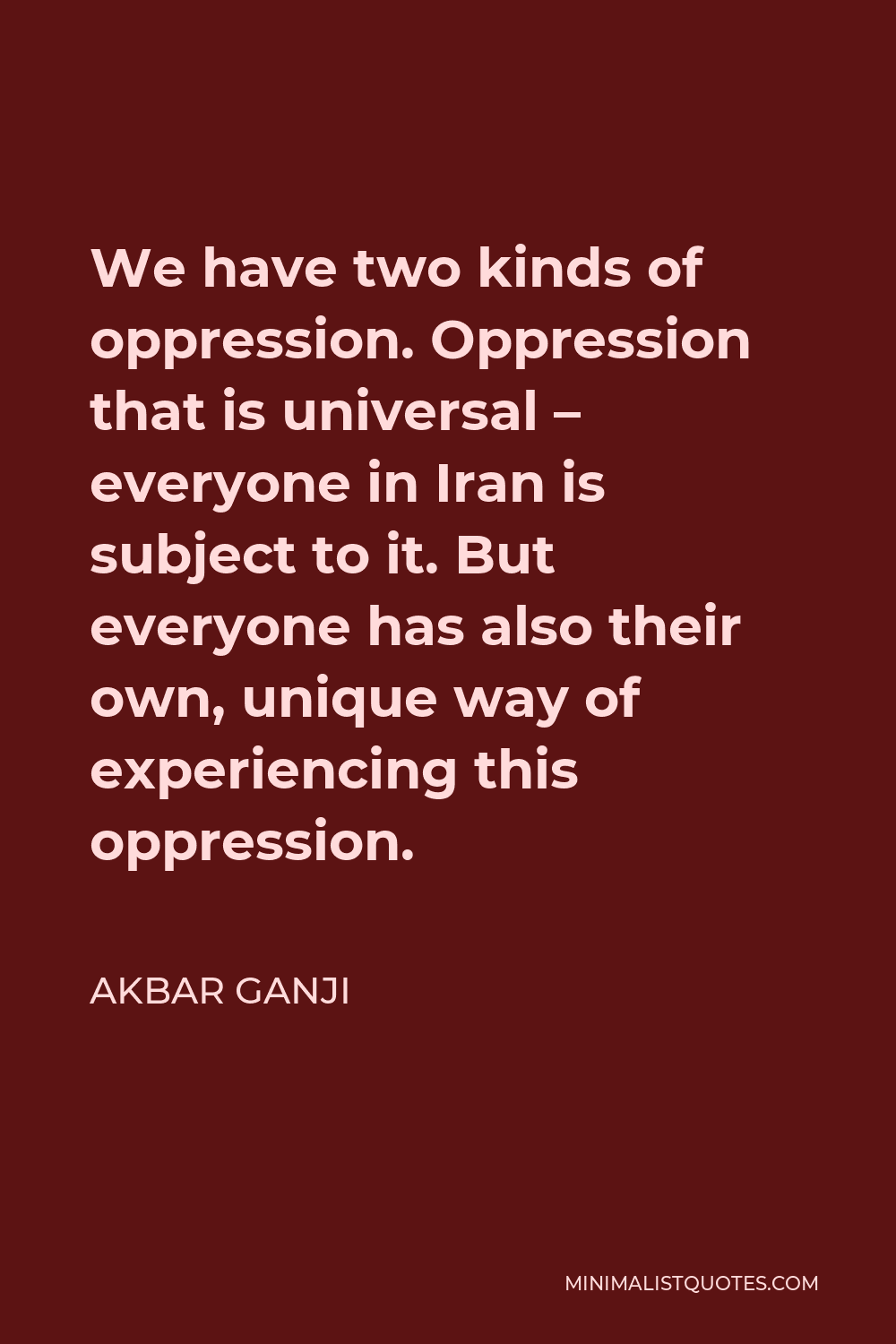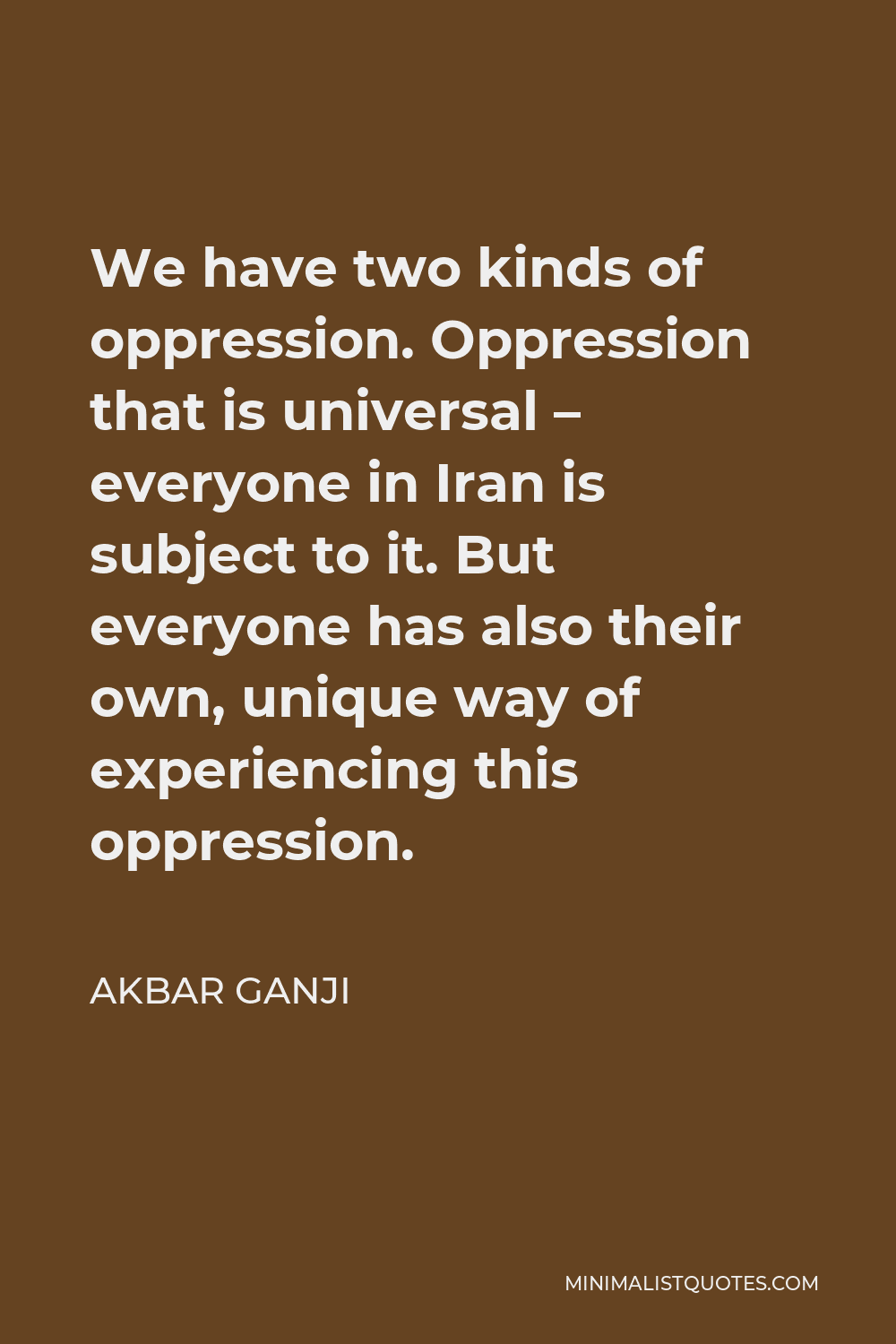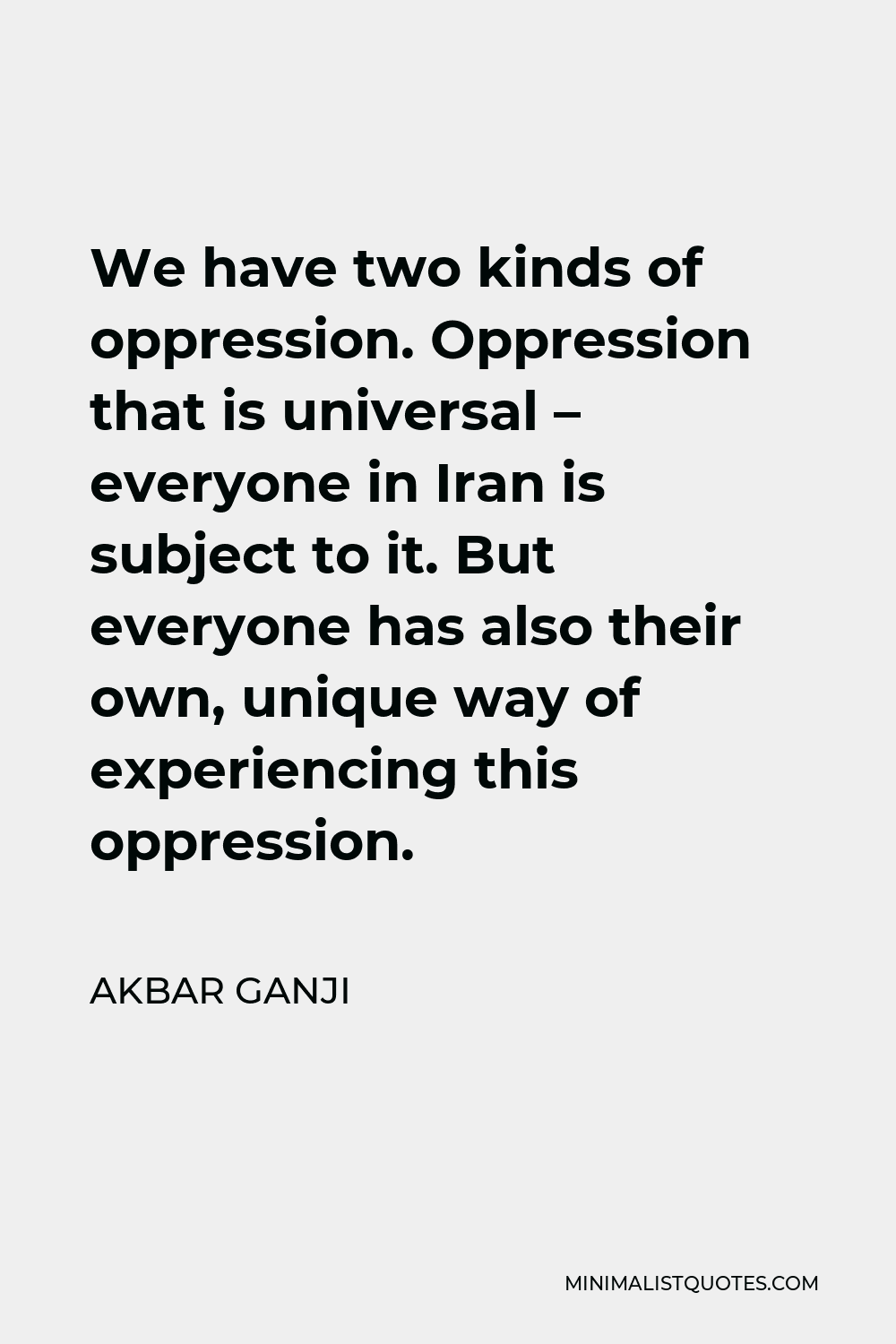We have two kinds of oppression. Oppression that is universal – everyone in Iran is subject to it. But everyone has also their own, unique way of experiencing this oppression.
AKBAR GANJIWe have two kinds of oppression. Oppression that is universal – everyone in Iran is subject to it. But everyone has also their own, unique way of experiencing this oppression.
More Akbar Ganji Quotes
-





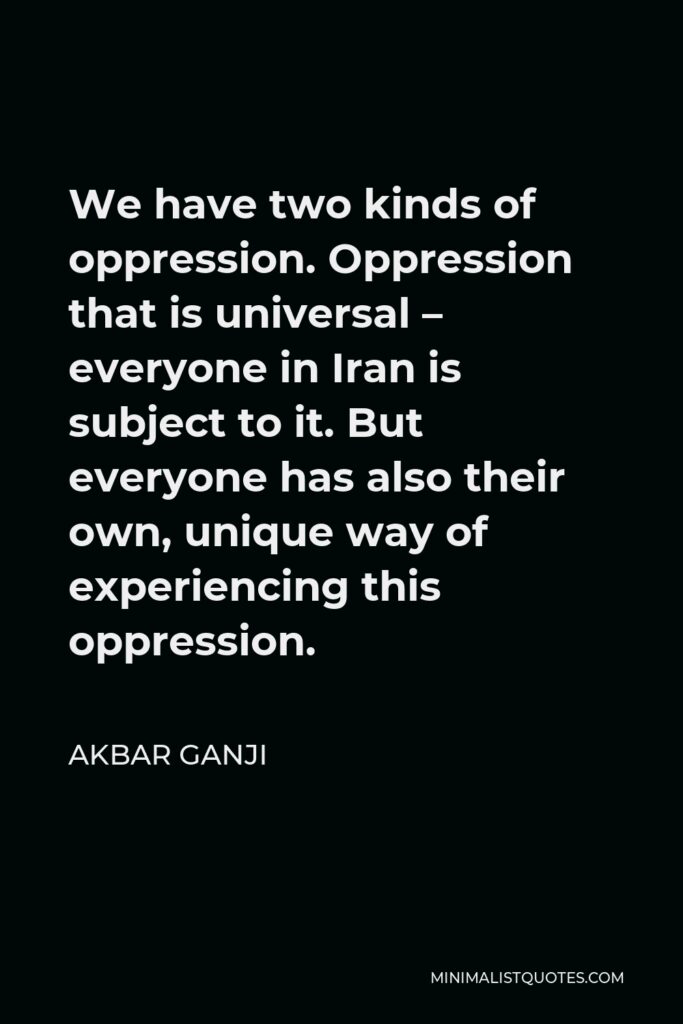

-





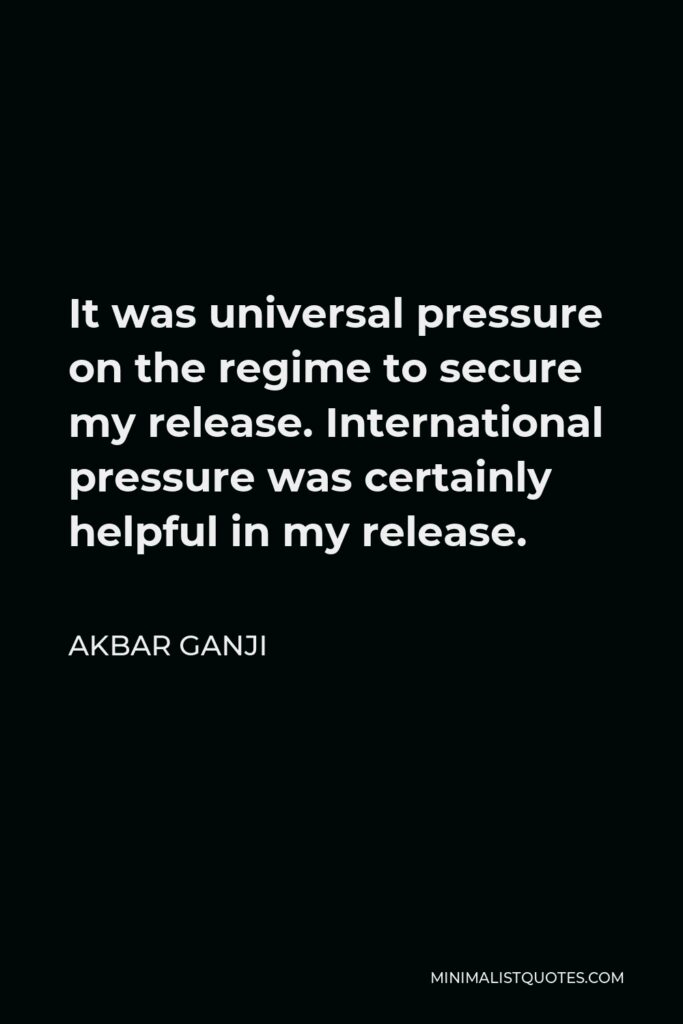

It was universal pressure on the regime to secure my release. International pressure was certainly helpful in my release.
AKBAR GANJI -





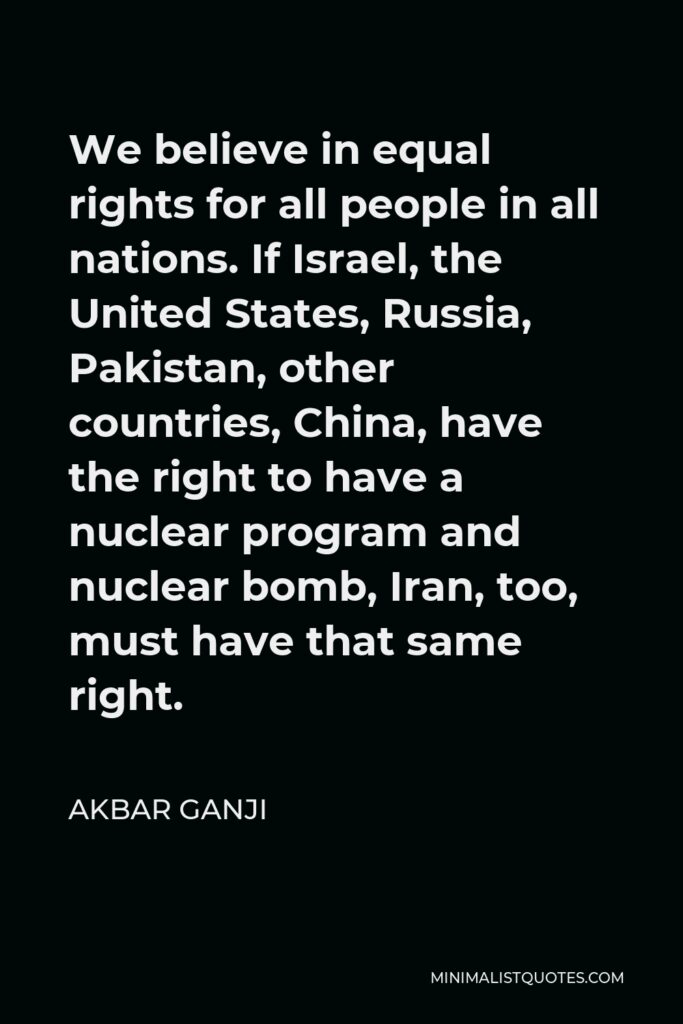

We believe in equal rights for all people in all nations. If Israel, the United States, Russia, Pakistan, other countries, China, have the right to have a nuclear program and nuclear bomb, Iran, too, must have that same right.
AKBAR GANJI -





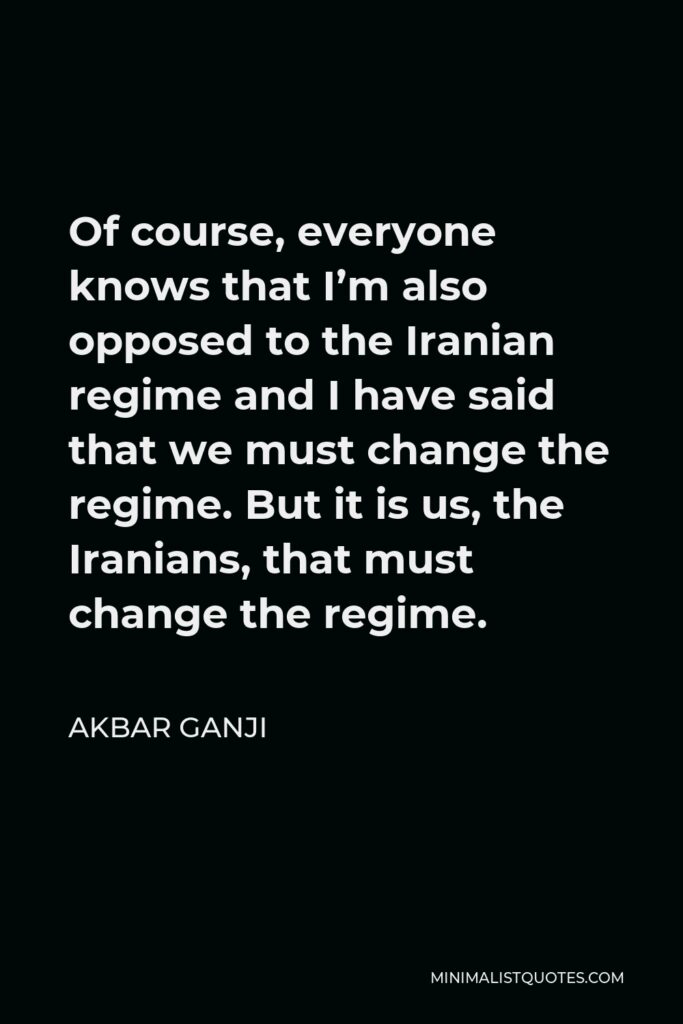

Of course, everyone knows that I’m also opposed to the Iranian regime and I have said that we must change the regime. But it is us, the Iranians, that must change the regime.
AKBAR GANJI -





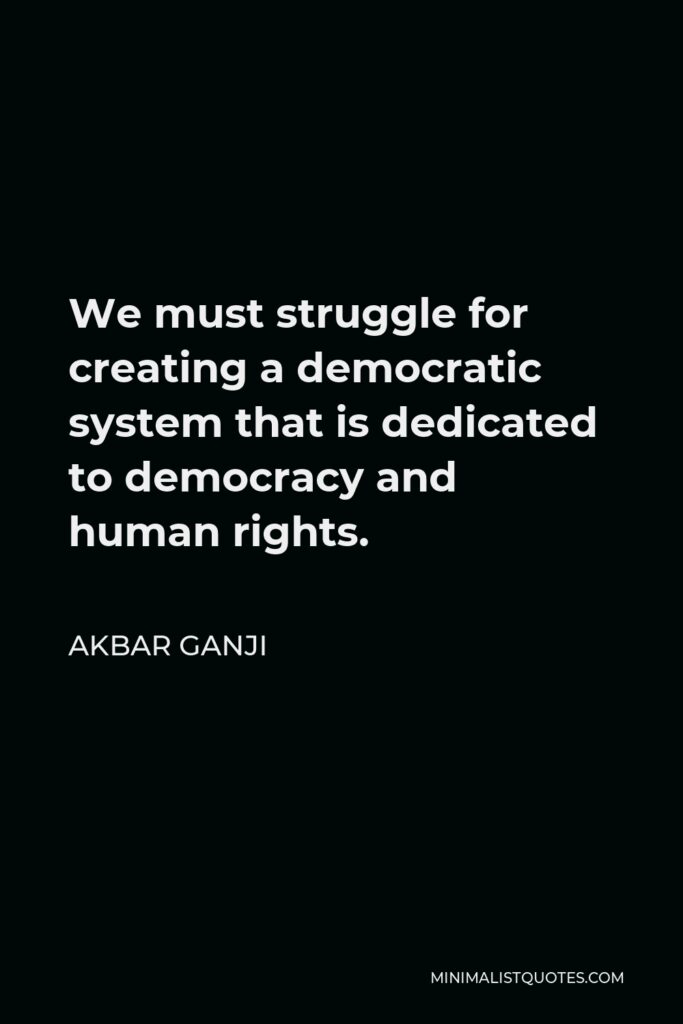

We must struggle for creating a democratic system that is dedicated to democracy and human rights.
AKBAR GANJI -





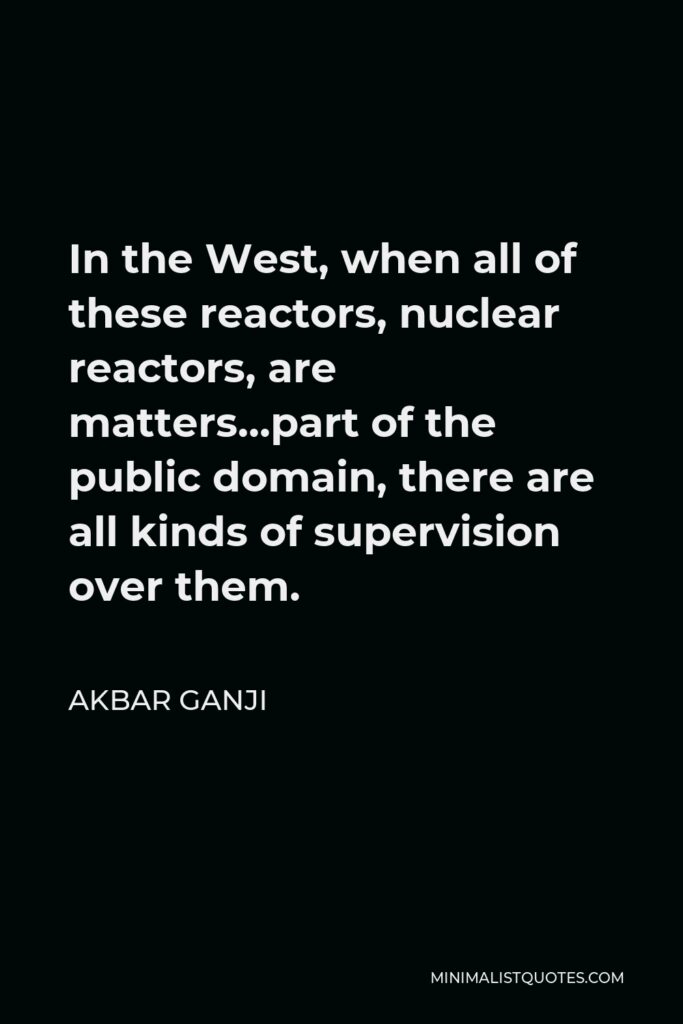

In the West, when all of these reactors, nuclear reactors, are matters…part of the public domain, there are all kinds of supervision over them.
AKBAR GANJI -





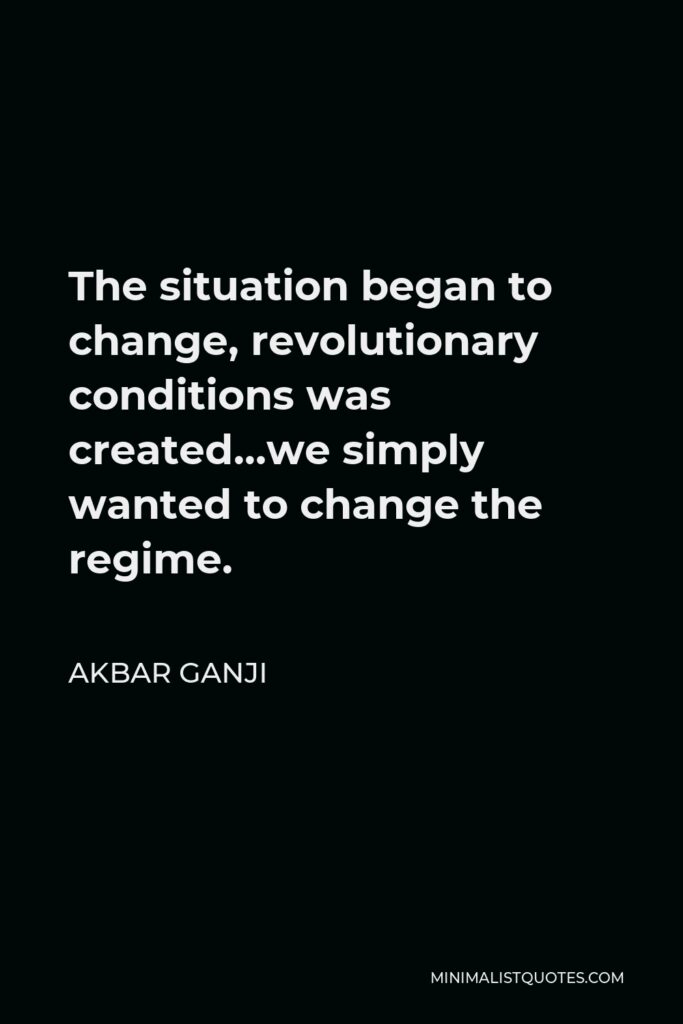

The situation began to change, revolutionary conditions was created…we simply wanted to change the regime.
AKBAR GANJI -





![Akbar Ganji Quote - The number of the opposition has certainly increased [in Iran].](https://minimalistquotes.com/wp-content/uploads/2022/07/the-number-of-the-opposition-has-certainly-increas-683x1024.jpg)

The number of the opposition has certainly increased [in Iran].
AKBAR GANJI -





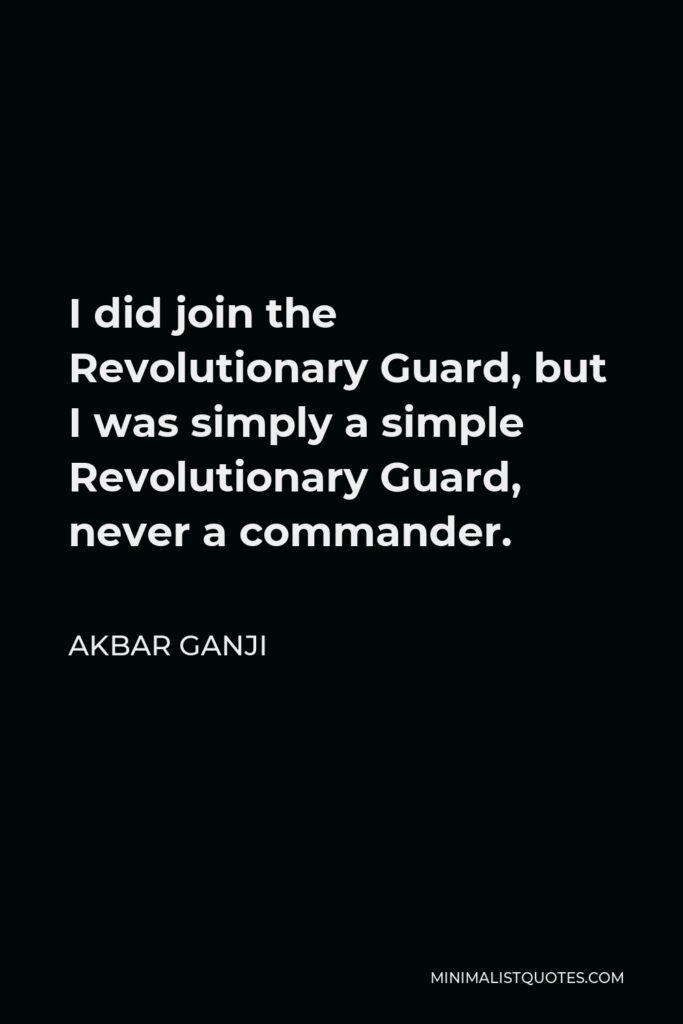

I did join the Revolutionary Guard, but I was simply a simple Revolutionary Guard, never a commander.
AKBAR GANJI -





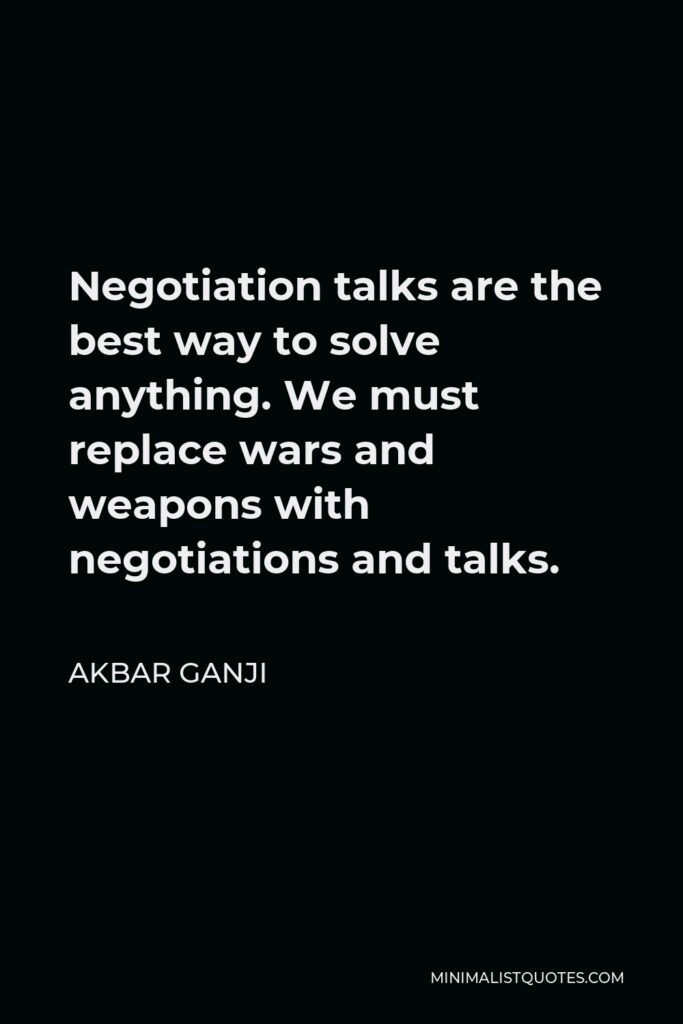

Negotiation talks are the best way to solve anything. We must replace wars and weapons with negotiations and talks.
AKBAR GANJI -





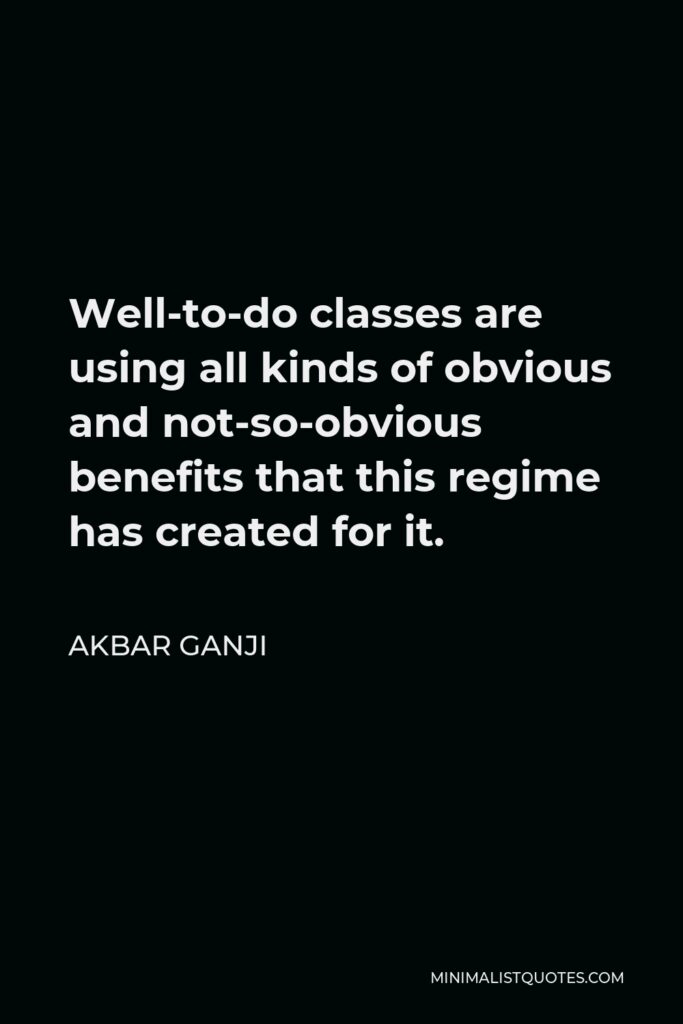

Well-to-do classes are using all kinds of obvious and not-so-obvious benefits that this regime has created for it.
AKBAR GANJI -





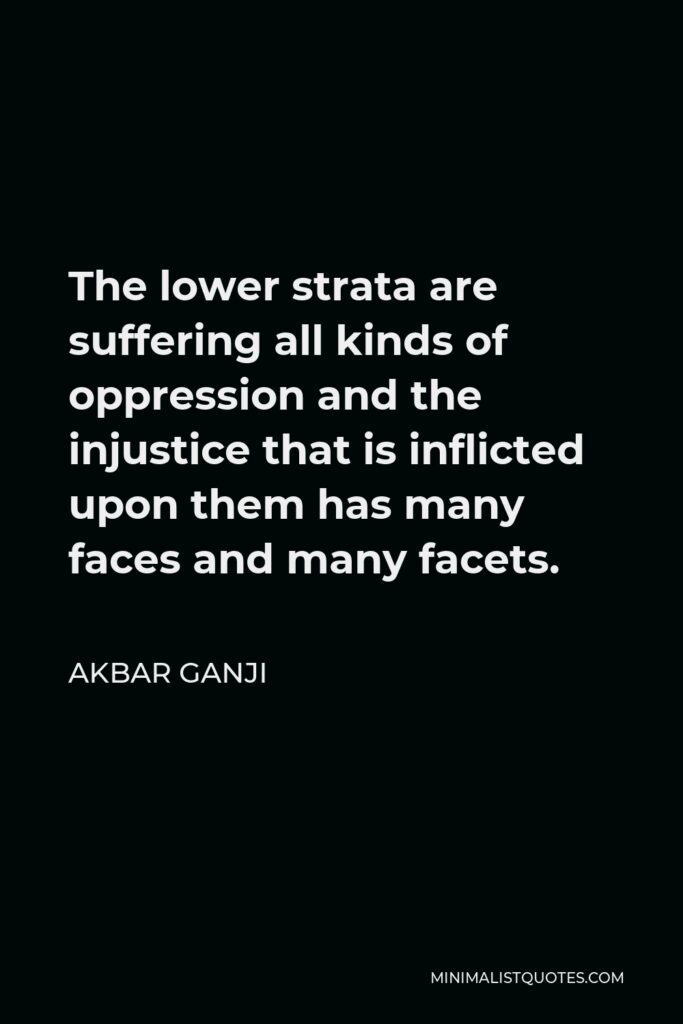

The lower strata are suffering all kinds of oppression and the injustice that is inflicted upon them has many faces and many facets.
AKBAR GANJI -





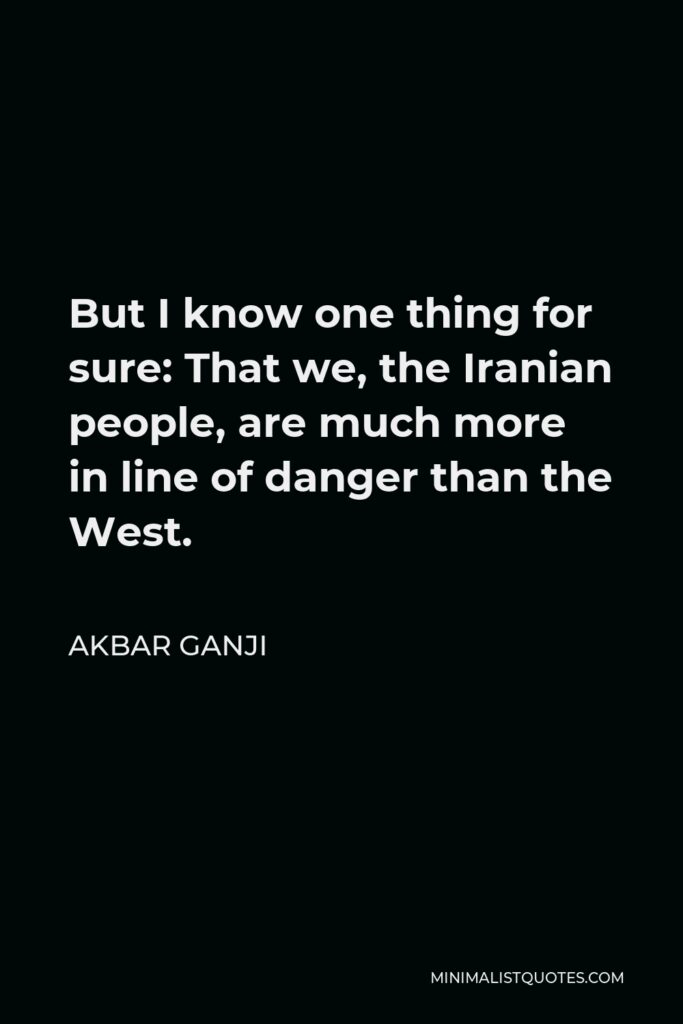

But I know one thing for sure: That we, the Iranian people, are much more in line of danger than the West.
AKBAR GANJI -





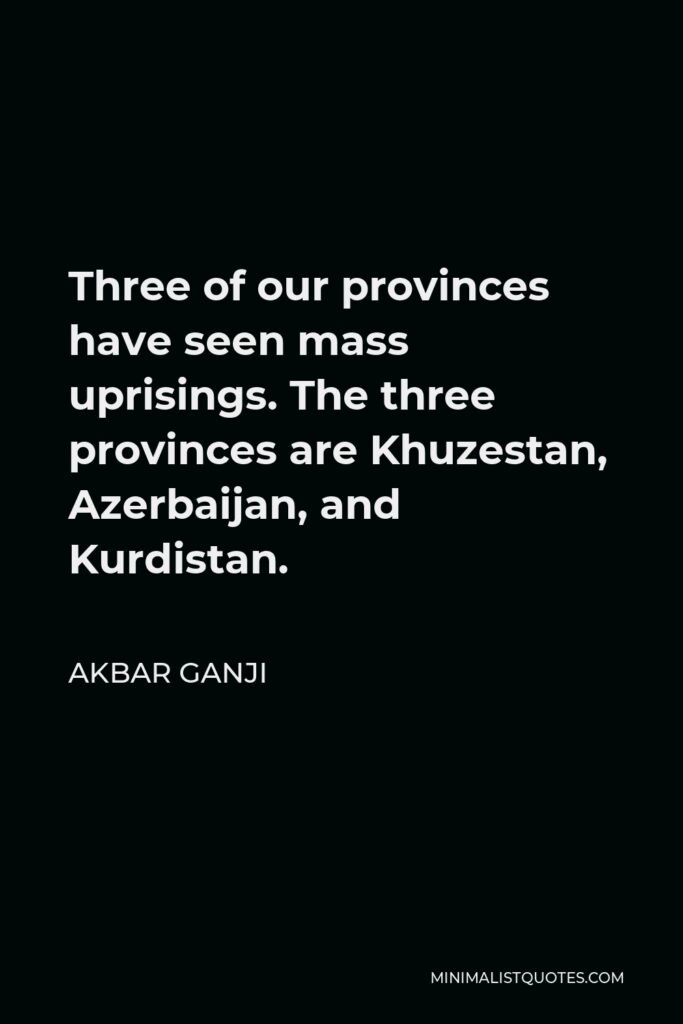

Three of our provinces have seen mass uprisings. The three provinces are Khuzestan, Azerbaijan, and Kurdistan.
AKBAR GANJI -





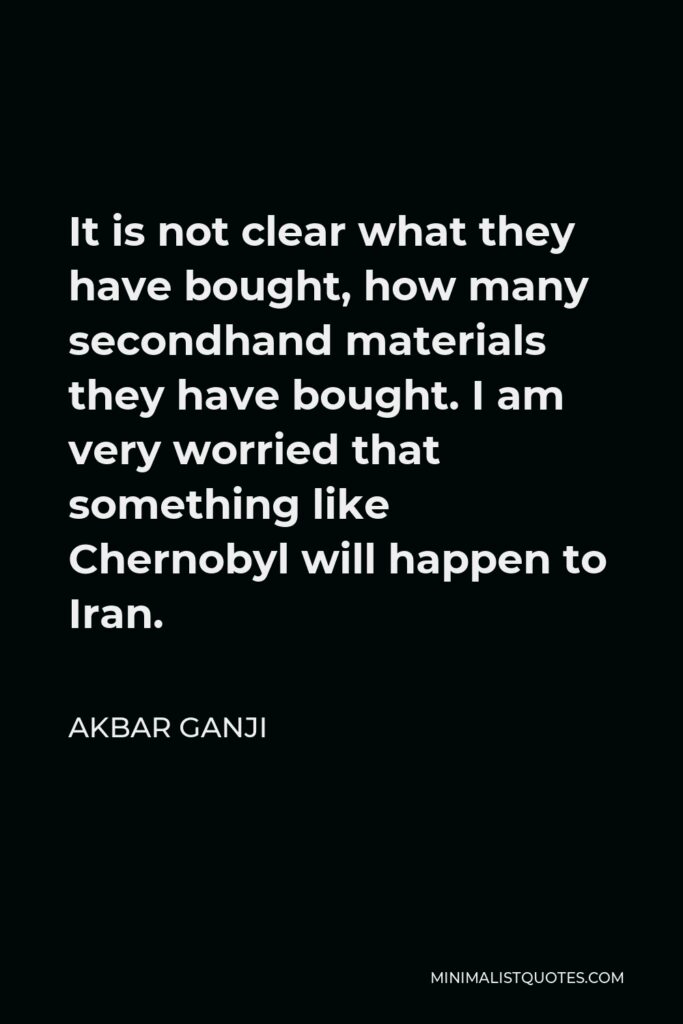

It is not clear what they have bought, how many secondhand materials they have bought. I am very worried that something like Chernobyl will happen to Iran.
AKBAR GANJI -





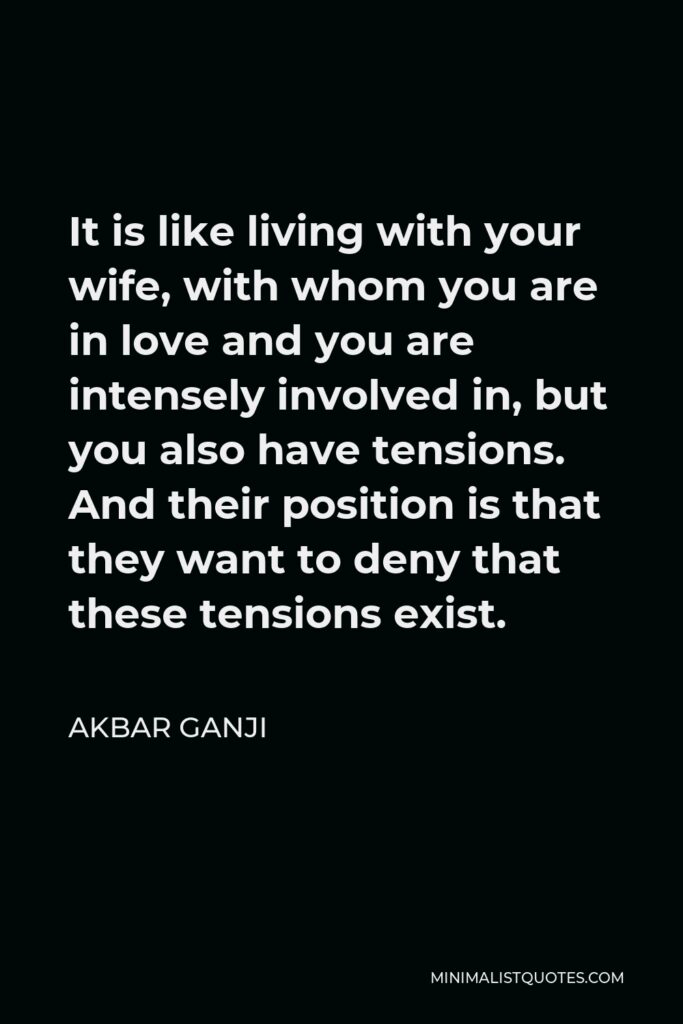

It is like living with your wife, with whom you are in love and you are intensely involved in, but you also have tensions. And their position is that they want to deny that these tensions exist.
AKBAR GANJI
